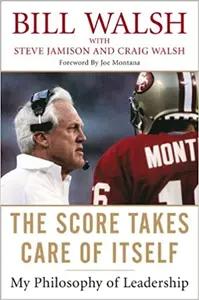The Principia: Mathematical Principles of Natural Philosophy
By Isaac Newton
Category
MathRecommended by
"The Principia" by Isaac Newton is a groundbreaking scientific work that revolutionized the fields of physics and mathematics.
In the first part of the book, Newton presents his three laws of motion, shedding light on the fundamental principles that govern the movement of objects. These laws have become the cornerstone of classical mechanics, and their implications have been widely applicable in various scientific disciplines.
The second part of "The Principia" explores the concept of gravitation. Newton introduces his law of universal gravitation, which states that every mass in the universe attracts every other mass with a force directly proportional to the product of their masses and inversely proportional to the square of the distance between them. This law forms the basis for understanding celestial mechanics, explaining the orbits of planets and other celestial bodies.
Within the third and final part, Newton delves into the field of fluid dynamics, studying the behavior of fluids under different conditions. He presents various theorems and principles, including the famous Newton's laws of viscosity, providing a valuable contribution to the understanding of fluid mechanics.
Overall, "The Principia" serves as a comprehensive and intricate exploration of natural phenomena, offering readers a profound understanding of the laws that govern the physical world. Newton's work continues to inspire and shape modern scientific research and remains an indispensable reference in the study of physics and mathematics.
In the first part of the book, Newton presents his three laws of motion, shedding light on the fundamental principles that govern the movement of objects. These laws have become the cornerstone of classical mechanics, and their implications have been widely applicable in various scientific disciplines.
The second part of "The Principia" explores the concept of gravitation. Newton introduces his law of universal gravitation, which states that every mass in the universe attracts every other mass with a force directly proportional to the product of their masses and inversely proportional to the square of the distance between them. This law forms the basis for understanding celestial mechanics, explaining the orbits of planets and other celestial bodies.
Within the third and final part, Newton delves into the field of fluid dynamics, studying the behavior of fluids under different conditions. He presents various theorems and principles, including the famous Newton's laws of viscosity, providing a valuable contribution to the understanding of fluid mechanics.
Overall, "The Principia" serves as a comprehensive and intricate exploration of natural phenomena, offering readers a profound understanding of the laws that govern the physical world. Newton's work continues to inspire and shape modern scientific research and remains an indispensable reference in the study of physics and mathematics.
Share This Book 📚
More Books in Math

Factfulness
Hans Rosling

Fooled By Randomness
Nassim Nicholas Taleb

Gödel, Escher, Bach
Douglas R. Hofstadter

Infinite Powers
Steven Strogatz

The Model Thinker
Scott Page

The Princeton Companion to Mathematics
Timothy Gowers

The Signal and the Noise
Nate Silver

A Mathematician's Apology
G. H. Hardy

A Mathematician's Lament
Paul Lockhart

Birth of a Theorem
Cédric Villani

Calculus Made Easy
Silvanus P. Thompson

Euclid's Elements
Euclid

How Nature Works
Per Bak

How To Lie With Statistics
Darrell Huff

Math, Better Explained
Kalid Azad

Mathematician's Delight
W. Sawyer

Mathematics
A.D. Aleksandrov

Naked Statistics
Charles Wheelan

Probability, Random Variables and Stochastic Processes
Athanasios Papoulis

Probability Theory
S.R.S. Varadhan

Q.E.D.
Burkard Polster

Statistical Consequences of Fat Tails
Nassim Taleb

Statistical Models
David A. Freedman

The Blank Swan
Elie Ayache

The Compleat Strategyst
J. D. Williams

The Elements of Statistical Learning
Trevor Hastie

The Mathematics of Politics
E. Arthur Robinson

The Perfect Bet
Adam Kucharski

The Principia
Isaac Newton

The Science of Conjecture
James Franklin
Popular Books Recommended by Great Minds 📚

The Moment of Lift
Melinda Gates

The Undoing Project
Michael Lewis

Principles
Ray Dalio

Thinking, Fast and Slow
Daniel Kahneman

Snow Crash
Neal Stephenson

Titan
Ron Chernow

Rework
Jason Fried

The Bitcoin Standard
Saifedean Ammous

Can't Hurt Me
David Goggins

Skin In The Game
Nassim Taleb

American Kingpin
Nick Bilton

Trailblazer
Marc Benioff

Red Notice
Bill Browder

The Outsiders
William Thorndike

The Lord of the Rings
J.R.R. Tolkien

Poor Charlie's Almanack
Charlie Munger

Extreme Ownership
Jocko Willink

The Coddling of the American Mind
Greg Lukianoff & Jonathan Haidt

Hopping Over The Rabbit Hole
Anthony Scaramucci

Lying
Sam Harris

How to Change Your Mind
Michael Pollan

The Holy Bible
Various

Give and Take
Adam Grant

The Hitchhikers Guide to the Galaxy
Douglas Adams

The Score Takes Care of Itself
Bill Walsh

The Hard Thing About Hard Things
Ben Horowitz

When Breath Becomes Air
Paul Kalanithi

The Courage To Be Disliked
Ichiro Kishimi

The Rise And Fall Of American Growth
Robert J. Gordon

Guns, Germs, and Steel
Jared Diamond